A tale of capacity building – The case of Youngistaan Foundation
Youngistaan Foundation Youngistaan Foundation is one of India’s largest volunteer-driven, grassroots, not-for-profit organizations. It is based in Hyderabad, Telangana. It works toward improving the lives of people from underserved communities. It attempts to do this through six active programs. These are aligned with seven United Nations Sustainable Development Goals. Registered in 2014, the organization has […]
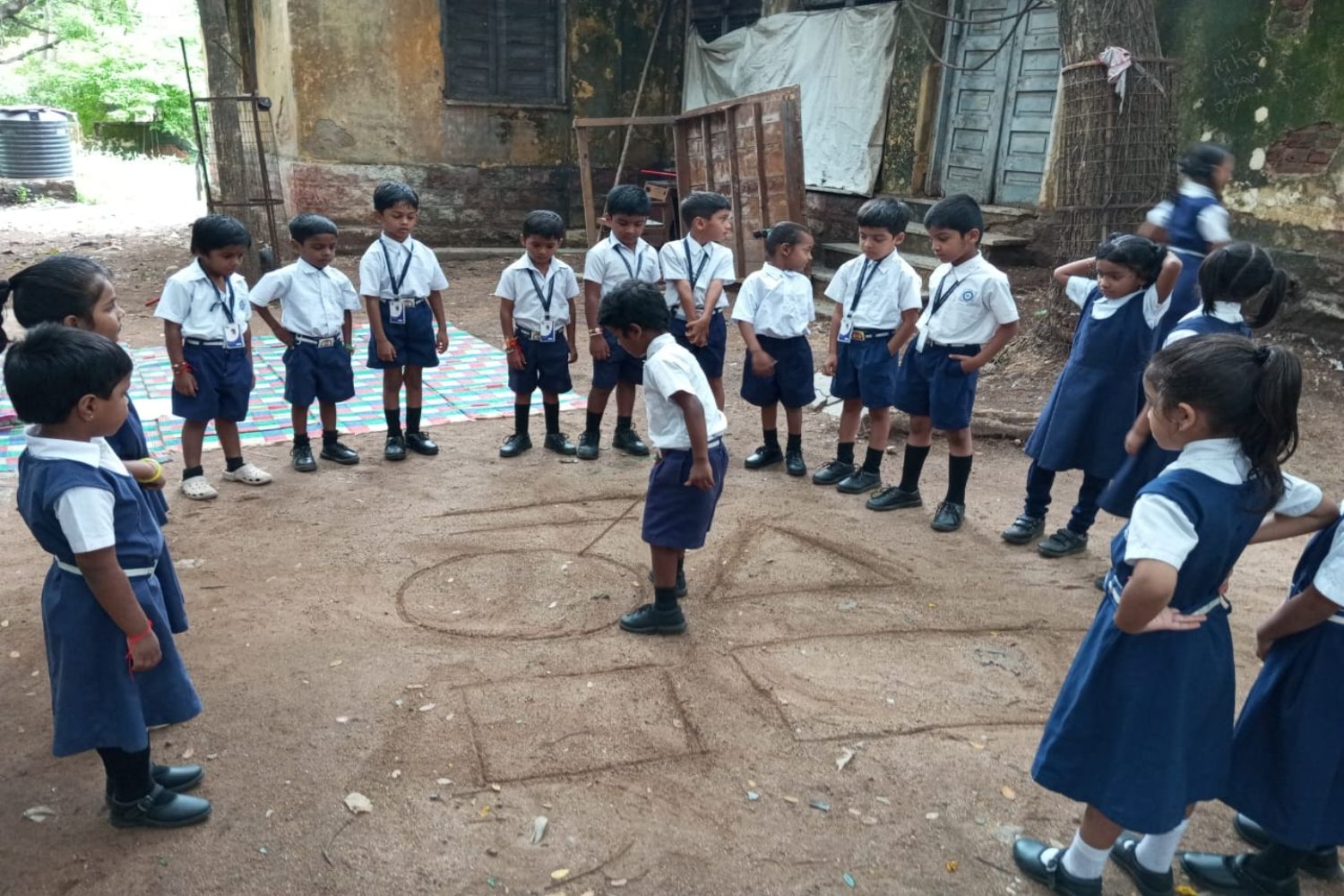
Youngistaan Foundation
Youngistaan Foundation is one of India’s largest volunteer-driven, grassroots, not-for-profit organizations. It is based in Hyderabad, Telangana. It works toward improving the lives of people from underserved communities. It attempts to do this through six active programs. These are aligned with seven United Nations Sustainable Development Goals.
Registered in 2014, the organization has supported over five (5) million lives in 60 cities. It has been able to do this with the help of 70,000+ volunteers. The CSO has partnered with 100+ public and private organizations. The overall goal of these collaborations has been to address five key social issues. These include livelihood, health, gender, education, climate, and the environment.
In addition to the above-mentioned themes, Youngistaan assists city governments and local municipalities in providing relief support during disasters. It also coordinates the execution of social welfare and supportive initiatives. The CSO promotes active citizenship by hosting large-scale advocacy events addressing social issues as well.
Youngistaan Foundation has been closely working with the Department for Women’s Development and Child Welfare, GHMC, Telangana State Police, Health Department, and other key stakeholders. Through partnerships with these governmental bodies, it has been strategically addressing social issues.
The organization’s beneficiaries include preschoolers, primary grade students, adolescent boys and girls, and the youth. It has also been working with the homeless, senior citizens, the trans community, migrants, and many other communities.
From concerned citizens to an organized collective
In the origin story of an organization lies the kernel of its purpose. A young journalist in Hyderabad, Arun Daniel Yellamaty, mobilized a group of like-minded citizens. The intent was to provide food, shelter and safety to vulnerable people experiencing homelessness. This set-up continued for two years.
More young volunteers started joining the efforts. Ideas started proliferating. Therefore, in 2014, Arun felt the need to register Youngistaan Foundation (YF) as an NGO. Social problems run deep. These require systematic intervention. In some ways, this was the first step toward capacity-building. This involved formalizing a motivated collective that would begin to articulate a shared vision and relevant outcomes.
Arun (Founder/Director) recalls how he made a conscious decision to take up a Master’s in Social Work. It helped him understand the complexities of development work. “Pursuing my MSW helped me frame the direction of my work. It also connected me to mentors who guided me. This shaped my career. It changed my outlook on making a difference as well”, Arun shares.
Over the next few years, Youngistaan Foundation consciously created a platform for collective action. For the youth, it opened up pertinent spaces where they could engage with social issues that were dear to them.
These included safety and rehabilitation of the homeless, active citizenship, educational inequity, menstrual health management and gender inequalities, climate change, and sensitization toward street animals.
Passionate young people with specific skill sets began to drive different grassroots operations in the field. These gradually transformed into full-fledged programs.
Autonomy as capacity
Each individual who joined had a voice. A team meeting, a team-building outing, or a team lunch – these were deliberate strategies to simultaneously share ideas and establish common ground.
Volunteers were accorded responsibilities based on their skills and interests. They started taking ownership of the work. Recognizing an individual’s capabilities and offering opportunities to exercise them gives wings to their potential.
Volunteers’ numbers started to grow. To support this process, we started putting in simple yet effective organizational processes.
These included selection procedures, induction, shadowing, volunteer management and roles, mandatory trainings, and meetings. These have helped to amplify our work and enhance volunteer satisfaction.
It is from within this ever-growing pool of socially aware volunteers that YF’s team has grown. These volunteers, over the years, have become key decision-makers in the organization.
Many of these volunteers have also become full-time employees. Some of them constitute the current core leadership. This has been yet another step toward building the organizational capacity of a young CSO.
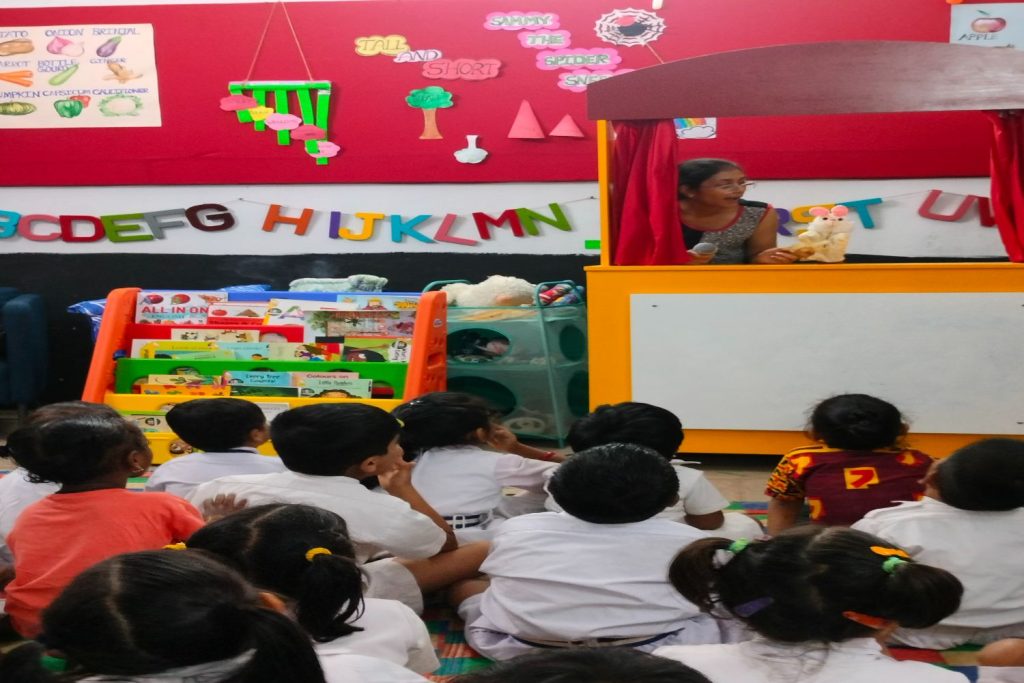
I joined YF as a volunteer. I have now led the education program for a number of years. I have been contributing toward framing and shaping YF’s response to educational inequity.
My own journey of test-reflect-learn-do at YF was possible owing to the space I had to explore. I also have had opportunities to study the deep-rooted complexities of inequity in local contexts.
Similarly, Ruthvika Kavuru, our Operations Manager, joined as a volunteer. She led the MHM program. She took it through multiple stages of evolution before coming to a more specialized role. She shares, “I stayed with Youngistaan because I was encouraged to take up new challenges even though I was so young when I first came in. There has always been a space to learn and evolve.”
In YF’s formative years, vision-building exercises for the organization and the programs were an iterative and democratic series of processes. A young organization can provide rich opportunities to build and lead teams and programs.
It has the potential to offer a culture of experimentation. This, in turn, helps individuals in the organization to learn and grow continuously. YF had capacity-building baked into its operating model.
Accountability as capacity
Over the years, the YF core team has been traveling deeper in their journeys to understand the organization’s role in addressing social inequalities. Through this process, we have come to realize that we need to simultaneously foster our volunteers’ social consciousness.
We have felt the need to build a community of volunteers whose altruistic service was coupled with an accurate understanding of the dynamics of power and privilege. Such a group must also be alert to questions and concerns related to social injustice, oppression and identity.
We have tried to be accountable to our beneficiaries. These include the homeless, marginalized children and their parents, community leaders, adolescent girls, and women. We have tried to incubate young leaders with socially just mindsets and sustainable problem-solving strategies.
So, we brought on experts who conducted a series of experiential workshops. These involved coaching sessions on self development, sensitization and empathy building. The workshops also dealt with value-based decision-making, respectful responding style, and positive discipline, among other things.
At this juncture, YF’s core team was building their own capacities indirectly through sessions that were designed for volunteers. This continuous capacity-building engagement, in its nascent stage, helped enrich key aspects of YF’s philosophy. We had been co-creating this shared understanding during our core team meetings. The preferred methods to develop this philosophy involved discussions on self-development, leadership styles, and ownership.
Eventually, these sessions helped create some common tools to systematize necessary organizational processes. This includes democratic management of teams, an experiential learning cycle model, and constructive feedback mechanisms.
Targeted capacity building for the leadership
Along with capacity-building offerings aimed at our volunteer teams, YF also capacitates its core team by strengthening pre-existing skills and attitudes and activating their latent talent. The call for formal and targeted capacity-building is initiated by core team leaders themselves.
This agency lends authenticity to the capacity-building efforts. As a matter of fact, the YF core team has been highly motivated and self-driven when it comes to capacity building initiatives.
Frequently, capacity-building needs arise organically from the necessity to address ground realities and challenges based on a leader’s experiences and subsequent reflections.
YF’s strength lies in the fact that the leadership continues to work directly in the field. The leadership’s ongoing grassroots connections have helped them develop a keen understanding of the context and the issues at hand, as well as the existing gaps.
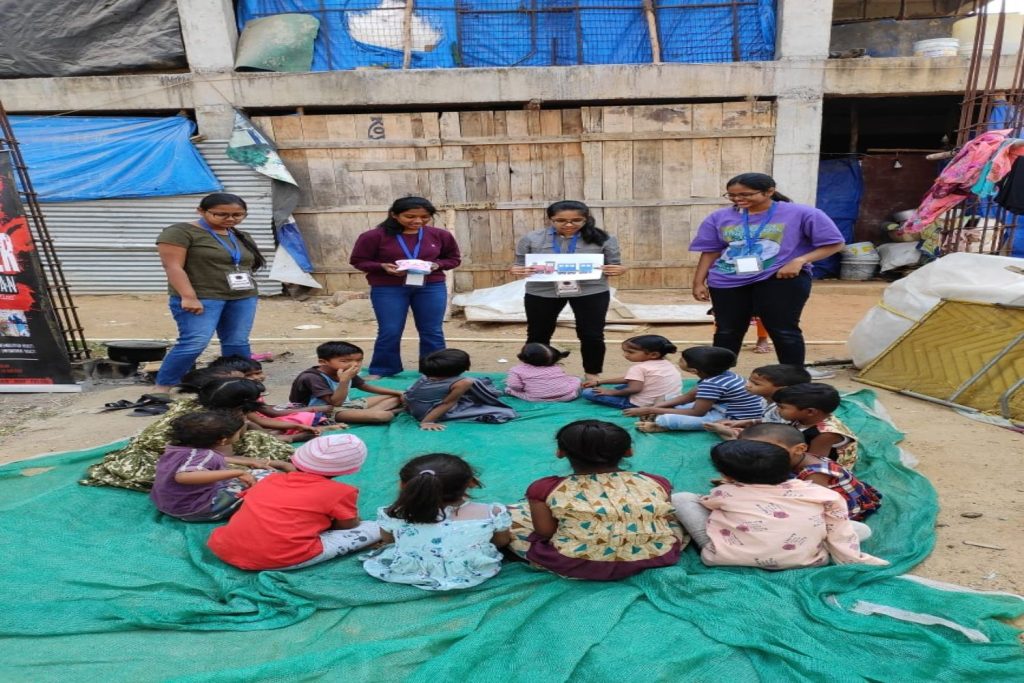
Program Heads identify the manner of support they need at different junctures of their program’s journey. They hold frank and lengthy discussions in the weekly meetings. These discussions focus on framing an intervention and improving the quality of impact. These also deal with the inclusion of stakeholders that one has not worked with, and building one’s own technical capacities.
Discussions on capacity building often tend to address meeting skill gaps, improving knowledge, and identifying best practices. As Ruthvika puts it, “We have a hunger to learn. To go deeper. Our capacity-building needs originate from our work in the field.”
Capacity-building is a work in progress much like our long-term programs. Our programs have undergone multiple iterations. At each stage, we have been open and welcome to learning and unlearning. Sometimes it is to prepare to pivot.
The launch of our Early Years Program (structured pedagogy approach) in school contexts was preceded by two years of selfstudy, online courses, and research. At other times it is to either deepen the impact as was in the case of our community-based SEL Program or to refine a program’s theory of change as we did for our MHM-Gender Program.
We learn so that we can share. Program Heads and their teams share knowledge and skills with their stakeholders. They could be teachers in a school or mothers in a basti.
Our core team designs capacity-building interventions based on their own learnings. These often take the form of training workshops for volunteers, teachers and parents. They also create shadowing opportunities.
Weekly coaching sessions are conducted as well. Sometimes, it is a mindset that we are sharing. This takes time and patience. We also share so that we can learn.
SEL (Social-Emotional Learning) Program Head, Jesu Vandana, narrates, “I remember a workshop where I went with the objective of teaching emotional awareness and selfcare. I heard the inputs of the team in a group sharing session. I listened to their struggles. In the process, I understood the importance of quietly holding that space for them. It compelled me to reflect upon and see my own challenges with a different lens.”
Pausing for perspective
The strengthening of a team’s capacities is sometimes akin to finding the missing piece of a jigsaw puzzle you have been building for years. In the early years, our team worked on building the self in relation to social problems. Years later, we paused to situate the self in relation to the organization. An additional goal was to recalibrate the well-being of both the individual and the collective.
We have always extended mental well-being and self-development sessions to our teams and volunteers. We have realized that certain capacity-building endeavors encourage us to pause and reflect on our work, and our unique selves in relation to our work. It is critical to pay heed to evolving team dynamics as an organization grows.
All of us have worked in the development sector for some time now. We have reached a point where we experience some form of empathic distress. Addressing these as a team helps sustain the synergy between who we are, what we do, and where we belong.
Jesu comments on the need to choose capacity-building offerings that rejuvenate self and self-motivation. She says, “As a social worker in the development sector, I have faced emotional fatigue. This has been due to the nature of the work. My own emotional battles in my personal life have also been a factor. Taking out time to focus on myself has helped me understand the power of self-care. I have had to help myself as I have helped others.”
The YF core team have taken on opportunities to strengthen resilience as individuals and team members. This has brought the team closer. It has also helped us understand each other’s challenges and strengths. This includes what one could categorize as emotion-related dialogue in the workspace.
We have made time and space for honest conversations like – “What I am struggling with” or “Why I feel exhausted”. This practice of introspection, sitting with discomfort, and sharing one’s reflections with the team has become a way of life at YF.
Strands of rope come together
Our organization has been growing. Our work has also been diversifying. In this process, we have come to deeply value the efforts and opportunities of strengthening our own capacities and that of our teams and beneficiaries.
We acknowledge that capacity-building presupposes a disposition to seek help with humility. It takes courage to approach fellow organizations. This also involves building networks, even as one faces rejection!
We acknowledge that we build ourselves on the decades of research and experience of those that have come before us. Sometimes reading peer-reviewed journals, knowledge papers, and policy briefs is a way to build our capacities.
We acknowledge that the capacities of CSOs, key stakeholders, and beneficiaries is interconnected. Cross-learning is fundamental to authentic impact. Bringing experts to share a common platform is a way of strengthening capacities together. Collaborating with government agencies to leverage existing solutions and expand our reach is another means of enhancing capacities together.
At YF, we are attempting to build bridges with like-minded organizations and official government channels. Ultimately, bolstering the assets of communities so that our beneficiaries build their own solutions is the goal of all capacity building in the development sector. YF finds itself travelling in this very direction. This is our purpose, and this is our future. This is why we strive to build our own capacities.


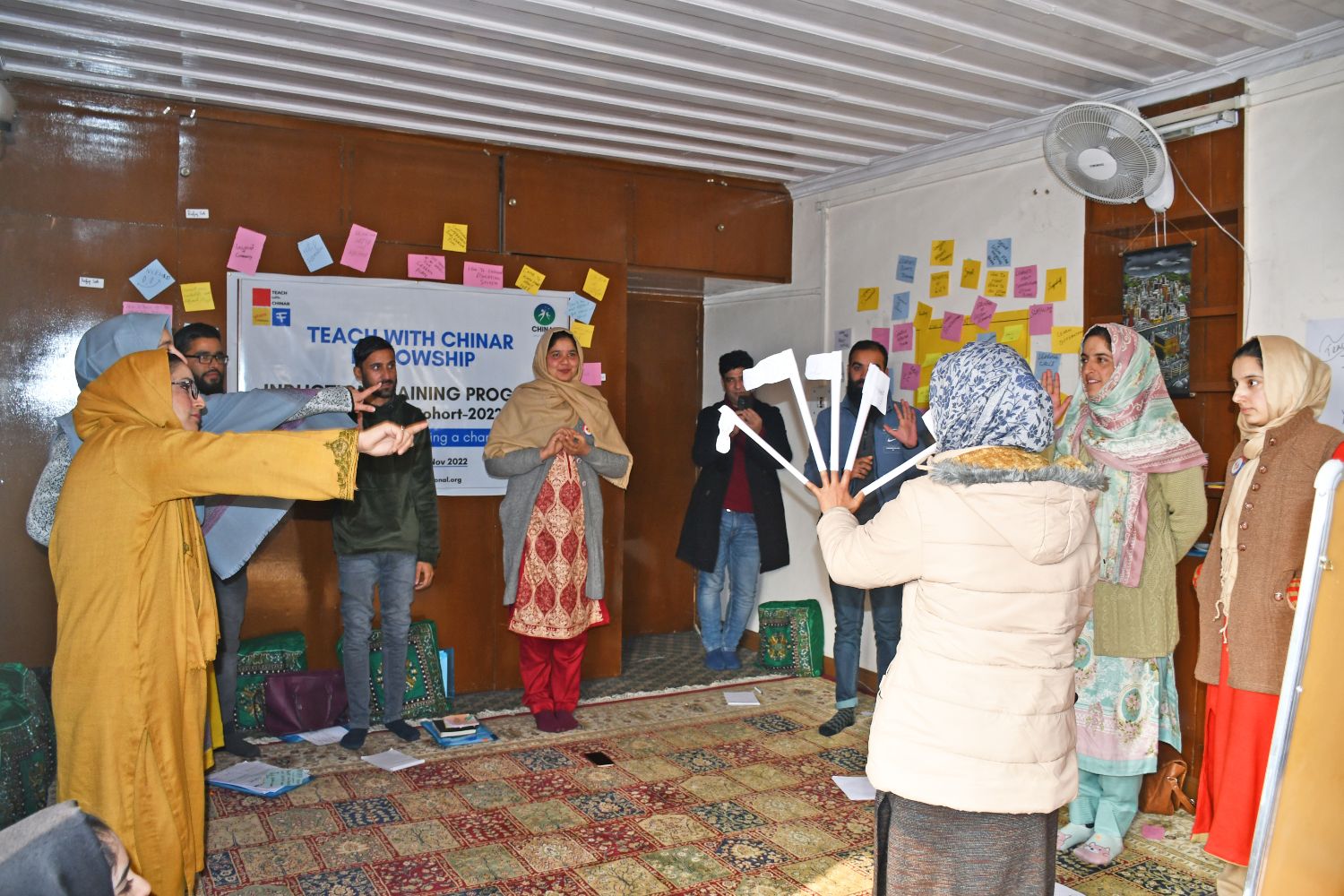
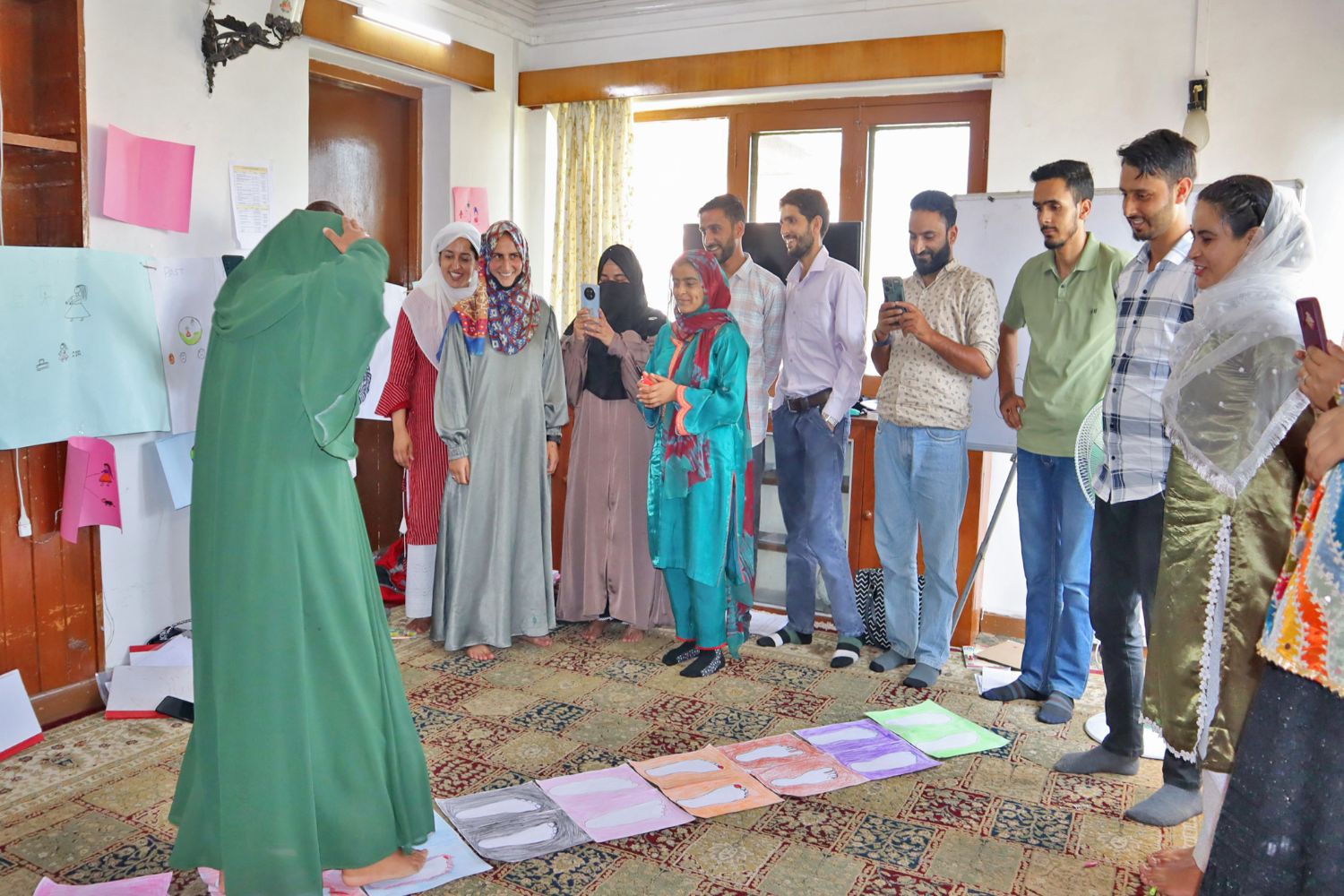
No approved comments yet. Be the first to comment!